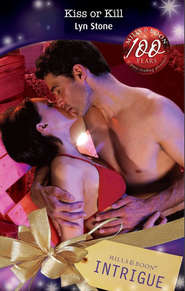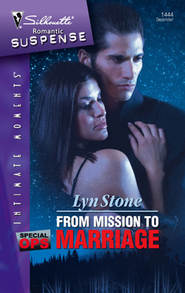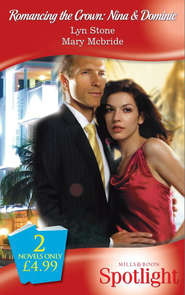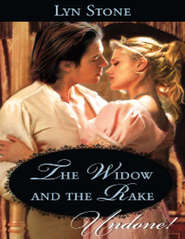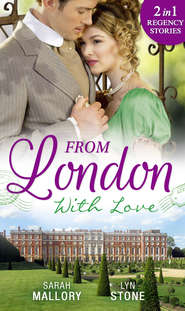По всем вопросам обращайтесь на: info@litportal.ru
(©) 2003-2025.
✖
Gifts of the Season: A Gift Most Rare / Christmas Charade / The Virtuous Widow
Настройки чтения
Размер шрифта
Высота строк
Поля
They had spent the entire morning working to transform the ballroom, relying on three footmen to help put holly boughs along the crowns of the tall pier glasses. More holly and glossy-green clippings from the boxwood had been arranged along the sideboards and draped from the mantelpieces of the four facing fireplaces, while red and white ribbons had been tied in bows from the polished brass chandeliers overhead and woven into the rails of the small musician’s gallery.
Revell’s paper chains were draped across the front of the pianoforte, brought up from the music room in the event any lady wished to play and spell the hired musicians. Tucked into all the greenery were the pasteboard animals that they’d made, a miniature Noah’s ark in an English forest, and once the scores of beeswax candles were lit tonight, the effect would be truly magical. She and Clarissa had every right to be proud, and so would Lady Fordyce, for such a spectacle would keep her guests—as well as everyone who hadn’t been invited—talking all through the winter.
Once again her glance wandered to the doorway, just as it had done over and over and over again all morning long, and still Revell didn’t come. He wouldn’t, either; she knew that now, after overhearing one of the footmen telling another that all the gentlemen had gone shooting soon after dawn, even that lord from India.
She sighed, and shook her head ruefully at her own foolish hopes. She missed him. That was the heart of it, wasn’t it? She missed him, and these last twenty-four hours seemed to stretch longer than the six years before. Thanks to the visit to Peterborough Hall yesterday, she hadn’t seen Revell since they’d cut the ivy together, exactly the way her ladyship intended. Surely she’d served at Ladysmith long enough to know that when Lady Fordyce determined upon an order, there’d be no countering her, and now that she’d deemed it necessary to keep Sara from Revell’s path, her ladyship would have boosted him into his saddle this morning with her own white hands.
“Can we go hunt for your costume now, Miss Blake?” asked Clarissa, hopping up and down in anticipation, the only acceptable mood on this, the day before Christmas. “You can’t come tonight in your regular old gowns. You’re not allowed to dress plain, Miss Blake, not tonight. No one is. You must look special, like the queen of hearts, or a fairy princess, or—or anyone else grand and rare!”
Sara made an exaggerated frown, wrinkling her nose at her reflection in the tall pier glass before her. “You’ll need far more than antique finery to transform me into a fairy princess, Clarissa.”
“But that is what a masquerade is for,” said Clarissa sternly. She took Sara’s hand, tugging her toward the door. “Come, Miss Blake! The lumber room is the best place in the whole house, and I—Albert, no!”
With a shriek of anguish, Clarissa raced across the ballroom to where her brother stood in the doorway, a cluster of curious guests peering around him. The men were still dressed for riding in frock coats and light-colored breeches, their boots wet with melting snow and their faces ruddy from the cold.
“No, no, no, Albert!” she wailed, jumping and flailing her arms toward his face. “You can’t come in here, not yet! You know no one can see until tonight! It’s supposed to be a surprise, Albert, a surprise!”
“Just a peek, Clary, eh?” he said, easily catching her windmilling hands as the others began entering around him. “I was telling everyone how grand the ballroom looks for Mother’s masquerade, and they wanted to see it, that’s all.”
“But now you’ve spoiled the surprise, Albert,” said Clarissa, her voice quivering with angry tears as she finally pulled free. “You’ve spoiled everything.”
Sara hurried forward, circling her arms around Clarissa’s shaking shoulders. “It’s all right, Clarissa,” she said softly, wishing she could personally throttle Albert by his thick neck. “Everything will look much better tonight when it’s dark and the candles are lit. You’ll see. They’ll still be surprised.”
A blond young woman in pink muslin pushed past them and into the center of the ballroom, and as she twirled flirtatiously on her toes Sara realized it was the same lady with the uncertain voice that she’d had to accompany in the music room: Miss Talbot.
“Why, dear Mr. Fordyce,” she cooed, making sure her skirts flicked above her ankles, “how charmingly childish this all is! Wouldn’t you agree, my lord?”
“I most assuredly would not,” said Revell, suddenly there, as well, the sprig of holly once again in his buttonhole. “There is nothing whatsoever childish about tigers and elephants, is there, Miss Clarissa?”
“No, my lord.” Vindicated, Clarissa sniffed back her tears, and narrowed her eyes at Miss Talbot. “Especially not when they eat you alive.”
Miss Talbot’s smile soured over the arc of her fan. “Goodness, Mr. Fordyce. What an ill-tempered little creature your sister is! If I were your dear mother, I should address the quality of her education directly.”
“Rather she should thank Miss Blake,” said Revell, “for giving Clarissa the best education imaginable, a model of wisdom and beauty.”
“Yes, she has,” echoed Clarissa loyally, but there was already question clouding her eyes, a suspicion that things among these grown-ups were not quite all they appeared.
She was right. Revell bowed toward Sara with his hand over his heart and a heavy lock of his hair falling forward across his brow, and making every other person in the ballroom an eager witness to exactly how violently the governess flushed at his lordship’s compliment. In return all Sara could do was remember what Lady Fordyce had said, how everyone at Ladysmith was whispering of nothing else than her and Revell, and here, alas, was all the proof anyone needed.
But as delicious as such scandal might be for the other guests, Sara could also feel a new, uncomfortable tension rippling through the room, marked with nervous coughs and titters. This time, clearly, there was a sense that Lord Revell had at last made his attention too public.
Uneasily, Albert cleared his throat. “I say, Claremont. Mind my little sister, eh?”
Revell’s smile didn’t change, but the edge in his voice was unmistakable. “What is there to mind, Fordyce? What is it that’s not fit for Clarissa to hear? Do you deny that Miss Blake is either wise, or beautiful? Or is it perhaps my own judgment you are doubting?”
“Neither, Claremont, neither at all,” blustered Albert miserably, blotting at his face with his handkerchief. “But I only ask that you, ah, that you not be quite so…quite so, ah—”
“Shall I play for us, Mr. Fordyce?” asked Sara quickly, hurrying to the pianoforte in the corner. As bad as it was to be the centerpiece of gossip, this was infinitely worse, having Revell jump to defend her honor like this. “Now that we are all gathered here in a room meant for music, on the very morning of Christmas Eve, wouldn’t a dance be a pleasant amusement?”
“A splendid idea, Miss Blake!” cried Albert with all the hearty desperation of a drowning man. He seized Clarissa’s hand, practically swinging her into the center of the ballroom. “You won’t mind playing for us, will you? Something gay and jolly, fit for the season, eh?”
“As you wish, Mr. Fordyce,” murmured Sara as she opened the lid covering the keyboard, trying to sound like the old, usual Sara instead of this new one that interceded so boldly between gentlemen. “It is my pleasure to play, Mr. Fordyce.”
“You’ll have to grant me more room than this, memsahib,” said Revell, suddenly sitting on the bench beside her so closely that his leg pressed against hers. “As Clarissa observed, I am far too large to overlook.”
Instantly, Sara scuttled away from him, more to break the contact than to grant him the room he’d asked for.
“Whatever are you doing, Rev?” she whispered urgently. “You can’t sit here, and you can’t call me memsahib! You’re supposed to be dancing with the others!”
“And I say I’m supposed to be here,” he said easily, sliding along the bench after her. The freshness of the outdoor air still clung to him, sharp and clean and reminding her again of standing among the holly bushes, and of all that holly sprig stood for. “Aren’t those my inept paper chains hanging there on the front to mark my place?”
“But, Rev, you can’t do this!” she protested in a frantic squeak. “You’ve already upset Mr. Fordyce and everyone else, and—”
“Did I upset you?” he asked gravely. “That’s all I care about.”
Oh, heaven help her, she was blushing again. “Not the same way, no,” she hedged. “But I am not such a public person as you are, and what you did is not—not proper, especially not when it’s nearly Christmas like this!”
“And I ask you, whatever happened to Christmas miracles?” Tentatively he curled his fingers over the keys, the sunlight glancing off the sapphire in his ring. “There was a piece for four hands we used to play together, a kind of jig that you’d taught me like a trained dog. I can’t promise that I won’t make a wretched muddle of it now after so long, but I am willing to try if you will.”
His smile was lopsided and surprisingly uncertain, and with a jolt she realized he was asking her for far more than to recall a simple tune. Was she willing to risk that wretched muddle to try to recapture what they’d once done together with such wonderful ease?
“Oh, Rev,” she said softly, reminding herself of all that was still so unsettled and unspoken between them, and how much more likely that muddle would be than anything else. But if he was willing to try, then how could she not? How could she refuse him, or herself, either?
“If you haven’t forgotten,” she said, choosing her words with the same care as had he, “then I haven’t, either, nor do I intend to shame myself and make a muddle.”
He grinned, and she plunged into the piece, making him swear as he hurried to catch her. Yet still they played better together than they’d any right to, the awkward notes and missteps forgiven by their enthusiasm. Over and over their arms touched and their fingers bumped into one other’s with exactly the intimacy that the long-ago composer had intended, and by the time the fast-paced jig had come to its close both she and Revell were laughing and breathless and completely unaware if anyone had danced to their music or not.
But the sound of one person applauding—only one—broke the spell. Still smiling, Sara turned, then quickly stood, just as Revell also rose to his feet.
The gentleman clapping was newly arrived, his traveling cloak still over his shoulders and his elegant dark clothes creased from his carriage, and from his world-weary, almost arrogant disdain, Sara would have known he was high-born and wealthy even if Lady Fordyce weren’t fluttering so anxiously around him, as if he were the greatest prize she’d ever captured.
And in a way he was. Sara had never seen the gentleman before, let alone met him. Yet she recognized him at once: he was older than Revell, an inch or two shorter, and his hair was lighter, but the shape of his face and smile, the ease with which he moved, were so much the same that there could be little doubt.
“Why, Revell, look at you,” said Brant, His Grace the Duke of Strachen, his voice deceptively languid as he looked not at his brother, but at Sara. “Such a…a diversion! It would seem that I’ve accepted Lady Fordyce’s invitation in the nick of time for a happy Christmas, doesn’t it? The very nick, I would venture, for us all.”
Chapter Seven
“I am disappointed, Revell,” said Brant with a sigh as he dropped into the chair before the new fire in his bedchamber. “I’d rather expected more from you. Oh, go ahead and sit. It’s not as if you’re standing in the docket.”
“From your manner, why should I feel otherwise?” Revell continued standing where he was behind the other armchair, his hands in fists on the chair’s back, which did in fact make him feel as if he were standing in some miserable courtroom, awaiting his sentence. Which, considering his older brother was willing enough to serve as prosecutor, judge, and jury combined, wasn’t far from the mark. “Under the circumstances, Brant, I believe I’d rather stand.”
Brant sighed, drumming his fingertips lightly on the padded leather arm of his chair. He had changed his traveling clothes for a long silk dressing gown, brilliantly printed with blue and red dragons, that was doubtless in the height of style. Brant was by far the most fashionable of the three brothers, not only in his dress, but in his friends and pastimes, as well, living fast, hard, and expensively. If Brant maintained that Revell was like last summer’s leaf, tossed wherever the wind took him, then Revell thought that Brant and his set were more like the sharks that swam in the China Sea, sleekly deadly and ready to tear apart their fellows without a thought.
“Circumstances, circumstances,” he now mused. “What precisely are the circumstances here, dear brother? You choose to come here in this obscure provincial household instead of spending the holidays with me at Claremont House, after which I receive the most distraught appeal from your hostess, accusing you of being a veritable fox in her henhouse.”
“There was no need for Lady Fordyce to have contacted you,” said Revell testily. “I am hardly anyone’s notion of a fox.”
“She didn’t contact me,” answered Brant, maddeningly mild. “She invited me to join her party. And since you seem to have found the—oh, what shall we say it is? The Christmas plum pudding? Sir Henry’s rum punch, famous throughout the county? The salubrious invigoration of the local air?—so thoroughly irresistible, I accepted, and now join you.”






